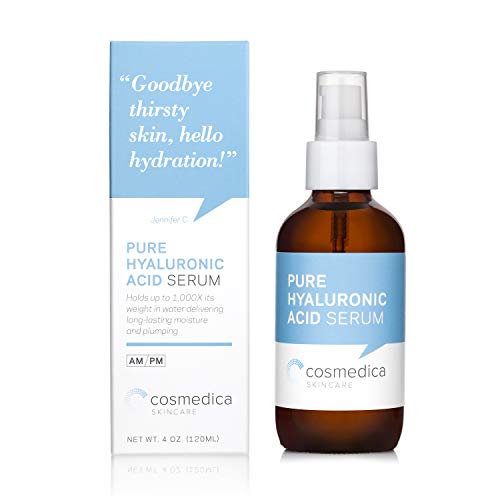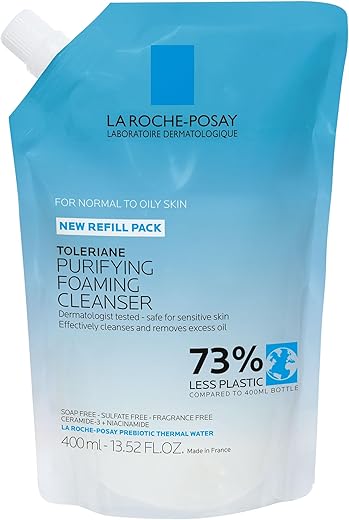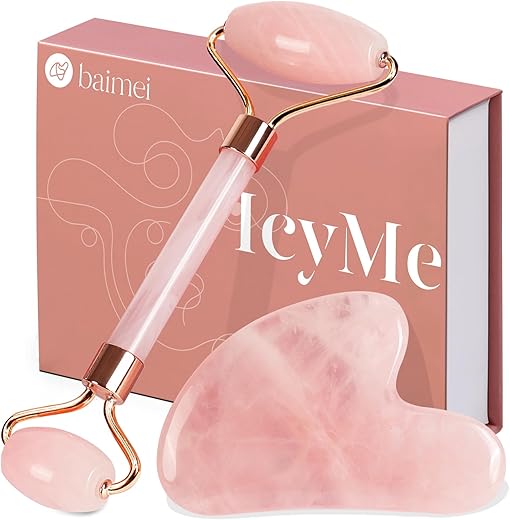
How to Choose the Right Face Serum for Your Skin Type
Are you tired of dealing with skin issues that just won’t seem to go away? Finding the right skincare products can be a daunting task, especially when it comes to face serums. With so many options available, it’s easy to feel overwhelmed and unsure of which one is right for you. But don’t worry, we’re here to help! In this post, we will guide you on how to choose the perfect face serum for your specific skin type. Whether you have dry, oily, or sensitive skin, we understand the frustration you may be experiencing. Our goal is to provide you with the knowledge and confidence to make an informed decision and finally achieve the healthy, radiant complexion you’ve always desired. So, let’s dive in and discover the secrets to finding the right face serum that will transform your skincare routine.
Top-rated Face Serums for Radiant Skin






Understanding Face Serums
When it comes to skincare, there are a plethora of products available, each claiming to work wonders for your skin. Among these, face serums have gained immense popularity in recent years. But what exactly are face serums, and what sets them apart from other skincare products? In this article, we will delve into the world of face serums, explaining their purpose and why they are an essential addition to your skincare routine.


What are Face Serums?
Face serums are lightweight, fast-absorbing skincare products that are formulated with a high concentration of active ingredients. Unlike creams and lotions, they have a liquid or gel-like consistency, allowing them to penetrate deeper into the skin. This makes serums highly effective in targeting specific skin concerns and delivering noticeable results.
How are Face Serums Different?
Concentration of Active Ingredients
One of the key differences between face serums and other skincare products is the concentration of active ingredients. Serums are formulated with a higher concentration of active ingredients, such as vitamins, antioxidants, peptides, and hyaluronic acid. This high concentration ensures that the active ingredients can deeply penetrate the skin and provide targeted benefits.
Texture and Absorption
Face serums have a lightweight texture that is easily absorbed by the skin. Unlike heavy creams and lotions, serums feel weightless on the skin and do not leave a greasy or sticky residue. This makes them suitable for all skin types, including oily and acne-prone skin.
Targeted Treatment
Another advantage of face serums is their ability to target specific skin concerns. Whether you are dealing with fine lines, wrinkles, dark spots, dullness, or uneven texture, there is a serum available to address your unique needs. By using a serum that is specifically formulated for your skin concern, you can achieve more noticeable and targeted results.
The Purpose of Face Serums
The primary purpose of face serums is to provide your skin with a concentrated dose of active ingredients that can address specific skin concerns. Here are some key benefits of incorporating a face serum into your skincare routine:
- Hydration: Serums are often formulated with hydrating ingredients like hyaluronic acid, which can provide intense moisture and plumpness to the skin.
- Anti-Aging: Many serums contain ingredients like retinol and peptides, which help reduce the appearance of fine lines, wrinkles, and sagging skin.
- Brightening: Serums enriched with Vitamin C or niacinamide can help even out skin tone and fade dark spots, giving you a more radiant complexion.
- Smoothing and Refining: Some serums contain exfoliating ingredients like AHAs and BHAs that can gently exfoliate the skin, promoting a smoother and more refined texture.
How to Use Face Serums
To get the most out of your face serum, it is important to use it correctly. Here are some general guidelines to follow:
- Cleanse your face thoroughly before applying the serum.
- Use a toner to balance the pH of your skin and prepare it for better absorption.
- Apply a small amount of serum onto your fingertips or palm.
- Gently pat or massage the serum onto your face and neck, focusing on areas of concern.
- Allow the serum to fully absorb before applying moisturizer or sunscreen.
Identifying Your Skin Type
Understanding your skin type is essential for maintaining healthy and radiant skin. Different skin types have varying needs and require specific skincare products. In this blog post, we will delve into the four main skin types – dry, oily, combination, and sensitive – and provide guidance on how to identify your skin type accurately.


Dry Skin
Dry skin is characterized by a lack of natural moisture and often appears dull, flaky, and rough. If you have dry skin, you may experience tightness, itchiness, and a tendency for fine lines and wrinkles to appear more prominently. Here are some key features of dry skin:
- Skin feels tight, especially after cleansing
- Lack of shine or oiliness on the skin’s surface
- Rough and flaky texture
- Prone to redness and irritation
Oily Skin
Oily skin, on the other hand, produces excessive sebum, resulting in a shiny complexion and enlarged pores. If you have oily skin, you might struggle with acne breakouts and a greasy feel. Here are some key features of oily skin:
- Skin appears shiny and greasy, even shortly after cleansing
- Enlarged pores, especially in the T-zone (forehead, nose, and chin)
- Prone to blackheads and acne breakouts
- Makeup may not stay in place for long
Combination Skin
Combination skin is a blend of both dry and oily skin types. Typically, the T-zone is oilier, while the cheeks and other areas may be drier. Managing combination skin can be a challenge as different areas require different skincare routines. Here are some key features of combination skin:
- T-zone (forehead, nose, and chin) appears oily, while cheeks may feel dry
- Enlarged pores in the T-zone
- Occasional breakouts in the oily areas
- Cheeks may have a rough texture or feel tight
Sensitive Skin
Sensitive skin is highly reactive and prone to irritation. If you have sensitive skin, you may experience redness, itching, and discomfort when using certain skincare products or exposed to environmental triggers. Here are some key features of sensitive skin:
- Easily irritated by skincare products, weather conditions, or certain ingredients
- May flush or turn red easily
- Prone to allergic reactions or breakouts from irritants
- Tends to feel tight or itchy
Determining Your Skin Type
Now that you have a basic understanding of the different skin types, it’s time to determine your own skin type. Here are some methods to help you identify your skin type accurately:
- Visual Inspection: Look closely at your skin in the mirror and observe its overall appearance, texture, and shine.
- Blotting Paper Test: Gently press a blotting paper against your face, focusing on the T-zone. If the paper picks up oil, you likely have oily skin. If there is little to no oil, you may have dry or combination skin.
- Skin Reaction to Products: Pay attention to how your skin reacts to different skincare products. If you experience immediate redness or irritation, you might have sensitive skin.
- Consult a Dermatologist: If you’re still unsure about your skin type, it’s best to seek professional advice from a dermatologist who can perform a thorough examination and provide personalized recommendations.
Choosing the Right Face Serum
Once you have identified your skin type, selecting the right face serum becomes easier. A face serum is a concentrated skincare product that addresses specific skin concerns. Here are some guidelines to consider when choosing a face serum for your skin type:
- Dry Skin: Look for a hydrating serum that replenishes moisture and nourishes the skin. Ingredients like hyaluronic acid and vitamin E are beneficial for dry skin.
- Oily Skin: Opt for a lightweight, oil-free serum that controls excess oil production and helps minimize pores. Ingredients like salicylic acid and niacinamide can be effective for oily skin.
- Combination Skin: Choose a serum that balances hydration and controls oil in the T-zone. Look for products with a blend of hydrating and oil-control ingredients.
- Sensitive Skin: Select a gentle and fragrance-free serum that soothes and calms the skin. Avoid ingredients known to cause irritation, such as fragrances and harsh chemicals.
Choosing the Right Ingredients
When it comes to skincare, choosing the right ingredients for your face serum is crucial. A face serum can provide a targeted treatment for your specific skin concerns, whether it’s dryness, oiliness, combination skin, or sensitivity. In this blog post, we’ll delve into the key ingredients to look for in a face serum based on your skin type, their benefits, and any ingredients to avoid.
Ingredients for Dry Skin
If you have dry skin, you’ll want to look for face serums that are rich in hydrating and nourishing ingredients. Here are some key ingredients to consider:
- Hyaluronic Acid: Known for its ability to hold moisture, hyaluronic acid is a powerhouse ingredient for dry skin. It replenishes moisture, plumps up the skin, and reduces the appearance of fine lines and wrinkles.
- Glycerin: Another excellent hydrating ingredient, glycerin attracts moisture from the environment and helps to lock it into the skin, keeping it hydrated and supple.
- Oils: Look for serums that contain nourishing oils like argan oil, rosehip oil, or jojoba oil. These oils provide deep hydration and help to restore the skin’s natural moisture barrier.
- Ceramides: Ceramides help to strengthen the skin’s barrier function, preventing moisture loss and keeping the skin hydrated for longer periods.
Ingredients for Oily Skin
If you have oily skin, it’s important to choose a face serum that provides hydration without adding excess oil. Look for these ingredients:
- Hyaluronic Acid: Yes, hyaluronic acid is a versatile ingredient that works well for all skin types. For oily skin, it offers lightweight hydration without clogging pores or causing breakouts.
- Niacinamide: This ingredient regulates oil production, minimizes the appearance of pores, and helps to control shine, making it ideal for oily skin types.
- Salicylic Acid: Known for its exfoliating properties, salicylic acid helps to unclog pores and prevent breakouts. It also reduces oiliness and promotes a clearer complexion.
- Green Tea Extract: Green tea is rich in antioxidants that help to soothe and balance oily skin. It also has anti-inflammatory properties that can calm redness and irritation.
Ingredients for Combination Skin
Combination skin can be tricky to manage, as it requires balancing hydration and oiliness. Here are some ingredients that work well for combination skin:
- Hyaluronic Acid: As mentioned earlier, hyaluronic acid is a great ingredient for all skin types, including combination skin. It provides hydration where needed without causing greasiness in oilier areas.
- Glycolic Acid: This alpha hydroxy acid helps to exfoliate the skin, removing dead cells and unclogging pores. It can help balance oil production and improve the overall texture and tone of combination skin.
- Vitamin C: Vitamin C is a powerful antioxidant that brightens the skin and promotes collagen production. It can help even out skin tone and improve the appearance of both oily and dry areas.
- Aloe Vera: Aloe vera has soothing properties that can calm both oily and dry areas of the skin. It helps to balance and hydrate combination skin without causing irritation.
Ingredients for Sensitive Skin
If you have sensitive skin, it’s essential to choose gentle and soothing ingredients that won’t cause irritation. Consider the following ingredients:
- Aloe Vera: Aloe vera is one of the best ingredients for sensitive skin. It has anti-inflammatory properties that soothe and calm irritated skin, reducing redness and sensitivity.
- Chamomile Extract: Chamomile is known for its calming and anti-inflammatory properties. It helps to soothe sensitive skin and reduces irritation and redness.
- Honey: Honey is a natural humectant that hydrates the skin without causing irritation. It also has antibacterial properties that can help with any blemishes or breakouts.
- Oat Extract: Oat extract is gentle and soothing, making it ideal for sensitive skin. It helps to calm irritation and provides hydration without causing any adverse reactions.
When choosing a face serum, keep in mind that everyone’s skin is unique, and what works for one person may not work for another. It’s essential to do a patch test before incorporating new products into your skincare routine to ensure they don’t cause any adverse reactions.
Remember to consult with a dermatologist or skincare professional for personalized recommendations based on your specific skin concerns. With the right ingredients, you can find a face serum that caters to your skin type and helps you achieve a healthier and more radiant complexion.
Making the Best Decision for Your Skin
In conclusion, choosing the right face serum for your skin type is crucial for achieving the desired results in your skincare routine. By considering factors such as your skin type, concerns, and ingredients, you can make an informed decision. Remember to consult with a dermatologist if needed. With the right face serum, you can address your skin concerns effectively and enhance the overall health and appearance of your skin.

Hey, I’m Ava Wilson—a skincare enthusiast and a certified esthetician. I’m dedicated to sharing my knowledge and empowering others to achieve healthy, glowing skin through simple, effective routines and natural remedies. Join me on this exciting skincare journey, and let’s unlock your skin’s potential for a confident, beautiful you.





